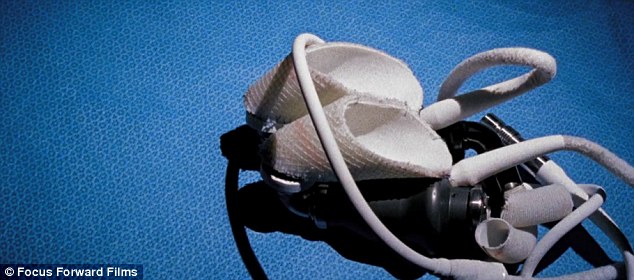Meet Craig Lewis, the first man to live without a heart. At the age of 55, Mr. Lewis had been told that he had only 12 hours left to live. He was suffering from amyloidosis, a disease where abnormal proteins (amyloids) build up in various tissues in the body. For Mr. Lewis, this disease affected his heart.

Craig Lewis the day after the operation. Reference: http://www.dailymail.co.uk/news/article-2096314/Meet-HEARTLESS-man-able-live-heartbeat-PULSE.html
In March of 2011, in order to try and save Mr. Lewis’ life, Dr. Billy Cohn and Dr. Bud Frazier, two doctors from the Texas Heart Institute, removed the patient’s heart and replaced it with the ‘continuous flow’ device. This device provided a continuous flow of blood throughout the body by using blades to circulate it. The ‘continuous flow’ device does not beat like a natural heart. With the use of this device, Mr. Lewis no longer had a pulse. There was only a humming sound coming from where his heart used to be. Incredibly, Mr. Lewis was able to speak and write the day after the operation. Craig Lewis was the first heartless man. Unfortunately, Mr. Lewis died 5 weeks later from liver and kidney failure.

The ‘continuous flow’ device. Reference: http://www.dailymail.co.uk/news/article-2096314/Meet-HEARTLESS-man-able-live-heartbeat-PULSE.html
This amazing story of the man without a heart is told in “Heart Stop Beating,” a video directed by Jeremiah Zagar:
Although this story is a great example of how far science and technology have come, there is always room for improvement. There have been concerns that pushing blood through this device is like using a “blender” on the blood cells, which may cause internal bleeding in other organs of the body. Dr. Billy Cohn and Dr. O.H. Frazier along with other doctors, inventors and scientists continue to work towards a better viable heart replacement.
Scientific discoveries are made every single day; they contribute to the technological and medical advancements that better the world we live in. Today, people live longer and happier lives thanks to the scientific advances that we often take for granted. The remarkable discoveries made now are steps towards the scientific advancements of the future that we can look forward to. What remarkable discoveries and new technology does the future of science have to offer? I guess we’ll just have to wait and see!
– Kathy Tran
References:
http://www.dailymail.co.uk/news/article-2096314/Meet-HEARTLESS-man-able-live-heartbeat-PULSE.html
http://www.medicinenet.com/amyloidosis/article.htm#amyloidosis_facts
